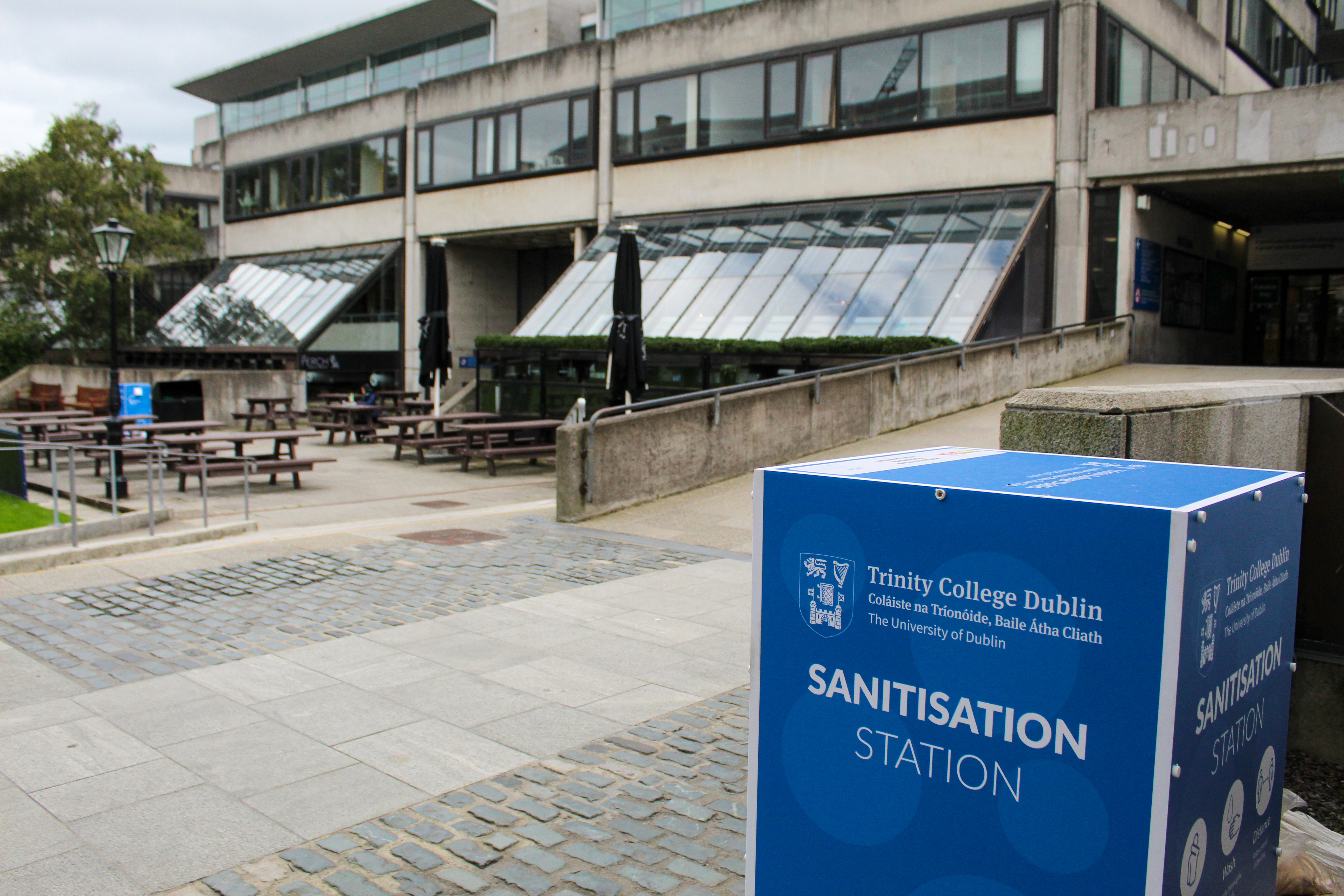Sanitisers that have been removed from the Department of Education’s list of biocidal products approved for use in schools following a government review are not in use in Trinity, College has confirmed.
Primary and secondary schools have been instructed to cease the use of over 50 sanitising products after a joint review from the Departments of Education and Agriculture could not confirm that the products’ registration status was satisfactory.
Trinity’s sanitisers have not been impacted by the review.
Speaking to Trinity News, a spokesperson for College said that “College can confirm that none of the sanitising products highlighted by the Department of Education are in use in Trinity”.
Multiple types of wipes, hand sanitisers, hand sanitiser refills, hand soaps and detergents have been removed from the approved list, amounting to 43 biocidal products and nine other products.
The review of sanitising products followed the recall of all Virapro products, a type of sanitiser that had been used by schools, the HSE, and retailers.
College has confirmed to Trinity News that there were no Virapro sanitising products in use in Trinity before the recall of the products was issued.
College first introduced hand sanitisers in campus and off-campus locations to try to prevent the possible spread of infection before Ireland’s first lockdown, and before the first case of Covid-19 in Trinity had been confirmed.
Hand sanitiser stations have been installed in Trinity at entrances to campus and in many frequently-used buildings.
A number of schools around the country were forced to close early the day before the mid-term break due to the sudden recall of the Virapro products.
The Virapro recall prompted a review of other biocidal products obtained through the Department of Education’s PPE procurement agreement.
In a statement, the Department of Education said that the removal of more products from its approved list for schools was made because it “had not been possible to satisfactorily confirm their registration status as part of the review”.
The department said that the products would not be included on the list again until their registration status is confirmed, but that the department has no evidence the products are unsafe.
“The Department of Agriculture, Food and Marine and the Education Procurement Service are engaging directly with the suppliers concerned regarding the status of these products and it may be possible to reinstate these products to the agreement at a later date,” the Department of Education said.
Schools were advised last week to stop using the removed products and store them securely until they are collected by their supplier.
“Schools impacted by the removal of these products will be provided with funding to source new supplies.”
“The suppliers and products on the agreement will be monitored on an ongoing basis and any further changes to the list will be notified to schools,” the department said.
“The Education Procurement Service has engaged with suppliers on the agreement in the last few days and there is sufficient stocks available for schools to order.”
“Schools seeking new product to replace stock should contact any of the suppliers on the agreement directly to process orders. The Department is working with suppliers to ensure that stock is provided to schools in time for reopening on Monday November 2 where needed. Suppliers are ready to prioritise school orders they receive.”
“Any school that is impacted by this will be provided with funding for an Aide for two days to assist with dealing with these issues.”
“Schools that have any difficulty sourcing an alternative supply or are concerned about a funding shortfall to cover this additional cost can contact the Department’s Covid-19 helpline or email address and Department staff will work to support schools.”
Guidance on on-site activity for higher and further education published during the summer said that institutions should supply functioning hand was facilities and consider introducing hand hygiene or sanitiser stations before reopening for the new semester.
The guidance outlined that stations should be located in entrances, exits and “high touchpoint areas and high footfall areas”, but without leading to “bottlnecks/congregations of staff and students undermining physical distancing of two metres”.
“Where bottlenecks are likely (for example, ‘teaching buildings’ with multiple lecture halls), institutions could consider multiple stations within a building,” the guidance said.
“As campuses reopen, institutions are advised to pay particular attention to such locations, use effective signage and respond quickly to prevent any activity that impedes distancing.”






